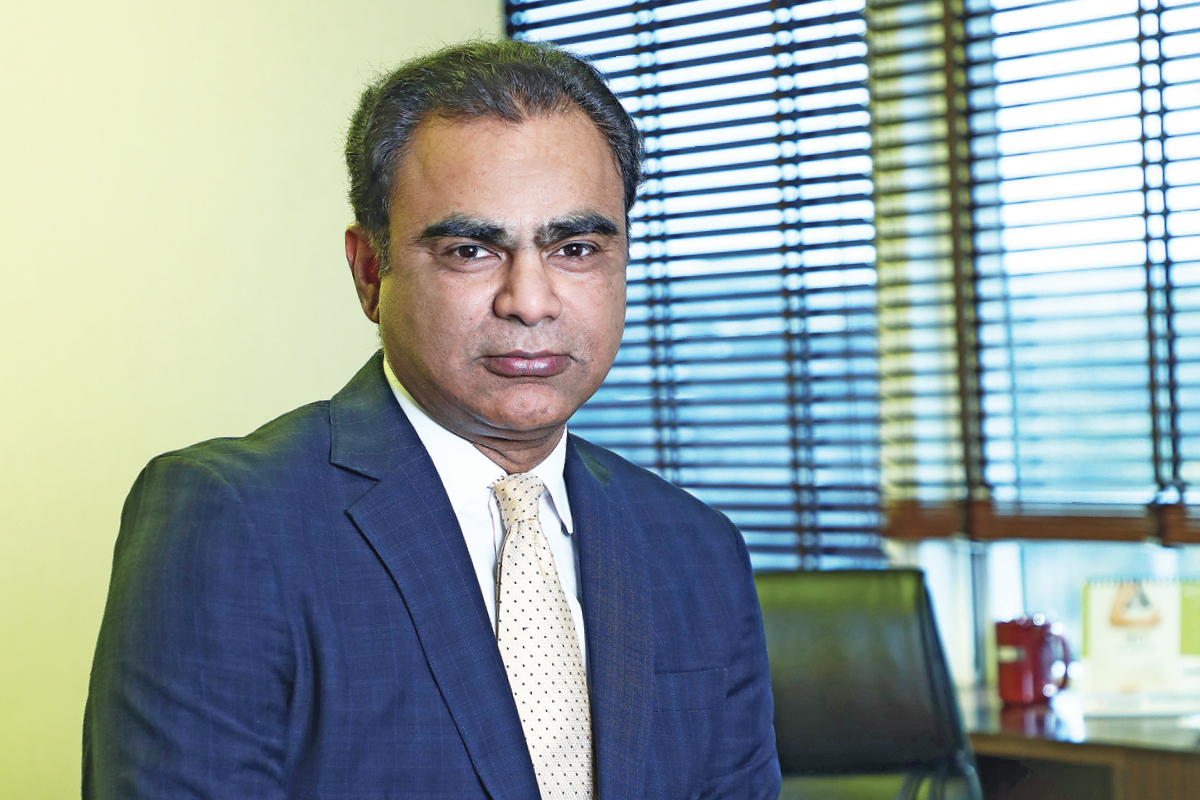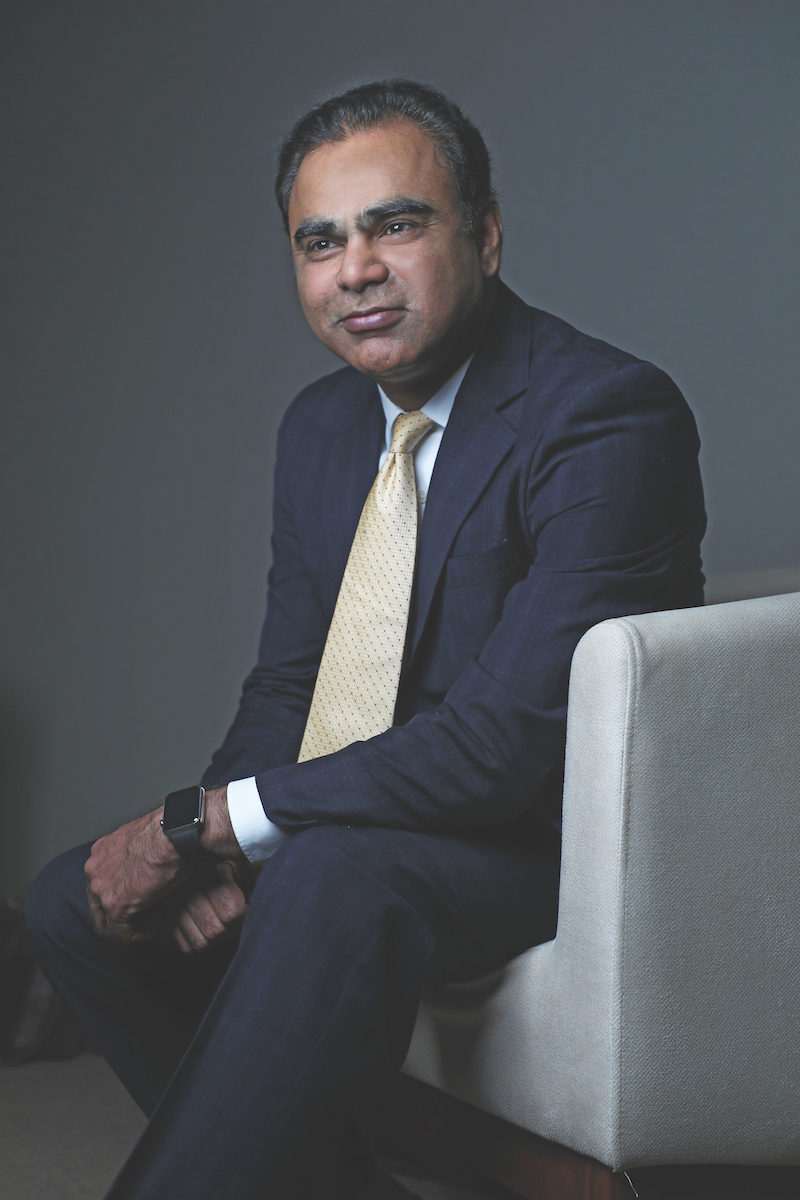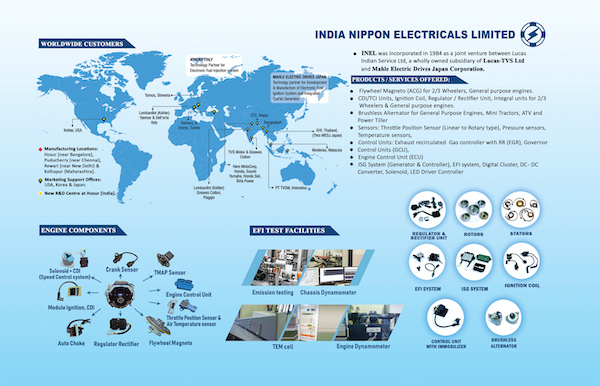Nagesh Basavanhalli enjoys a reputation for being transformational. It’s rather unsurprisingly real when you consider he’s been a global automotive executive for the past two decades.

The CEO of engine and heavy equipment manufacturer Greaves Cotton has witnessed his industry shaken to the core in its relentless pursuit of evolving technology to gratify consumer and environmental demands.
However, while Nagesh uses the disruption to diversify and invest in cutting-edge technology, he relies on a much more dependable approach to keep his business a step ahead of the others.
“I always hire people smarter than me,” he says. “If they are smarter than me, our team will do better and it’s really the team that make it happen. I am only as good as my team and I’ve been fortunate to be associated with a lot of very smart people.
“Getting the right talent is critical today,” Nagesh adds. “I look for people with passion and attitude who we can help develop while having some fun along the way. After all, it’s important to enjoy what you do.”
Nagesh’s own career has been global and varied. For 15 years, he enjoyed multiple roles with Daimler Chrysler in the US and was the President of Fiat Chrysler Automobiles in India for nearly eight years before joining ATG Group as Group President across Asia–Pacific, the Middle East, Africa and South America.
He gained a Bachelor of Science degree in Mechanical Engineering from Bangalore University, a Master of Science from the University of Texas and an MBA from the University of Chicago School of Business.
“There are obviously a lot of things you learn from Western education and Western work culture and ethics,” Nagesh reflects. “All of them are ingrained in me from my time working and studying in the US.”
Greaves Cotton, based in Mumbai, manufactures and markets diesel, petrol, CNG and electric engines ideal for three- and four-wheeler vehicles or small marine engines used in a variety of industries including health, defence, education and hospitality.

Greaves Agri manufactures pump sets, power tillers and light agricultural equipment such as brush cutters, reapers, weeders and sprayers, while Greaves Power produces an extensive range of generator sets.
“We make about 400,000 engines a year,” Nagesh says. “That’s about an engine a minute.” Greaves employs around 1,750, including more than 325 engineers working in research and development and testing.
The engines are manufactured at six state-of-the art facilities across India, and sold through more than 325 retail centres.
Last year, in its quest to diversify its product portfolio further, the company acquired a 67% stake in electric vehicle maker Ampere Vehicles to provide the technology and platforms for affordable mobility solutions in the two-wheeler space.
“When I joined Greaves in 2016, the company was known for brand, reach and capability, predominantly for diesel engines,” Nagesh explains. “Today, we are moving from a diesel engine manufacturer, to a fuel agnostic solution and services company.
“Consumer preferences change and, looking at the future, diesel or petrol may not be around, so we need alternatives. The use of CNG, hybrid and electric will increase, so we are investing in a lot of new technology to assist personal and commercial mobility. I believe the two- and three-wheelers will drive this electric technology in India over the next 10 to 15 years. Four-wheelers will follow, especially if the price of lithium batteries falls over the next several years.”
The company is also one of the fastest-growing multi-brand spares and service retail outlets in India, celebrating serving its five millionth customer last year. Its outlets selling spare parts have increased from 3,000 to more than 5,000 in just two years.
“We have moved from being a single product manufacturer catering to diesel, to a one-stop solution for all two- and three-wheelers. Then we ventured into multi-brand service for the three-wheeler community across the country and eventually we will offer this to the two-wheeler community as well.
“It’s a case of organising the unorganised. There are 20,000 mom-and-pop shop mechanics, and we’re organising them into Greaves Care retail centres. This is getting us closer to our end consumer.”
Nagesh places a high priority on suppliers, but warns they won’t be indulged, no matter how long the relationship has thrived. He explains that among the 500-plus Greaves suppliers there are varying degrees of development. Some are stronger than others when it comes to innovation.
“We are very proud to have this supplier base and clearly we respect them for what they bring to the table, whether they are the smallest or the biggest on the block,” he says. “We have relationships that have grown over decades and we are very happy to continue growing with them.
“We have invested in technologies, either putting in the investment ourselves, or partnering with a company. For example, we partnered with a California clean-tech company and brought that technology to the region for the first time. Our goal is to work with a couple of other start-ups in Silicon Valley and Bangalore to bring new technology to this market.
“Suppliers need to step up with us.”
“Suppliers need to step up with us. We have to make them partners in innovation to the extent they can contribute to our vision and continue with
us into the future.”
Nagesh doesn’t shy away from leading his team with bold, innovative ideas, believing it to be the best strategy to carry Greaves into the future. Once again, he stresses the importance of hiring the right people to overcome the challenges that go hand-in-hand with developing a compelling vision.
“We are in the age of unprecedented disruption, but along with that there is huge opportunity. We have to make sure our strategic plan is focused, then stay the course and execute. We won’t worry about the challenges, because we will figure it out. Together.
Proudly supported by:



